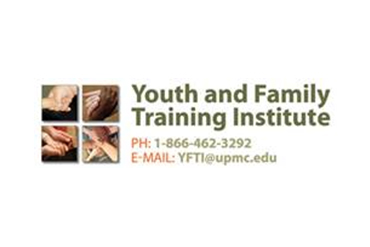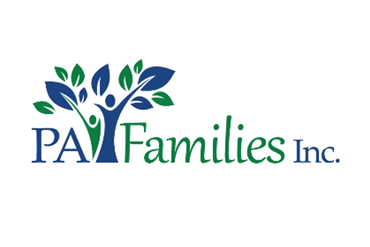Schedule for Monday, April 30, 2018
2018 INTERAGENCY CONFERENCE SCHEDULE
SCHEDULE
Monday, April 30, 2018
Levels of Workshops and Institutes
Basic: Introduction to a community service model or professional tool/instrument; description of specific conditions or modalities of treatment, community collaborative projects (focus is on obtaining basic knowledge).
Intermediate: State policy updates; review and application of research data related to specific conditions or service models; advanced information and updates about specific conditions, treatment modalities or professional instruments (focus is on enhancing knowledge and application).
Advanced: Review of most recent research/best practice in the context of a comprehensive field of knowledge, including an application of research to the future direction of entire systems of care, treatment modalities or research initiates; specific advanced skills that assume knowledge and proficiency in the area (focus is on
synthesizing recent advances and future directions).
Key for target audiences listed:
C—Clinical
CO—County administrators, agency planners, and managed care organizations
XS—Cross-systems partners
F—Family
Y—Youth and young adult
EC—Early childhood
Noon-3:00 p.m. Opening General Session
Welcoming Remarks
Shannon Fagan, Director, Bureau of Children’s Behavioral Health
Services, Office of Mental Health and Substance Abuse Services
Representative from the Department of Human Services
Families Supporting Families: More Than Just a Movement
Millie Sweeney, MS, Deputy Director, Family-Run Executive Director Leadership Association
Although families have been supporting each other for decades through
family-run organizations, it has just been in the last fifteen to twenty
years that family engagement and support has become recognized as a vital
component of the service array for families of children and youth with
emotional and behavioral disorders. Parents and caregivers are
increasingly involved at both the practice and policy level across child-serving
systems. This presentation will offer a “state of the field”
regarding family engagement and the expanding provision of parent peer
support nationally.
Elevating Young Adults to Young Professionals: The Next
Evolution of Youth Development
Lacy (Kendrick Burk) Dicharry, MS, MBA, CEO, Kevin and Margaret Hines Foundation
A leader in the youth movement, Lacy will speak about the transition of
being a youth learning to share her voice to being a youth advocate
supporting collective youth voice for systems change. She will share
through lived-experience and best practice how to support youth and
young adults to use their voices as powerful change agents to improve
systems and outcomes for youth and young adults across mental health
and other systems.
Performance by the Capital Area School for the Arts, Harrisburg, PA
3:15-4:45 p.m.
Workshops
M 1
Level: Basic
Audience: F, Co, XS
Moving From Advocacy to Leadership: Strategies for Families
and Their Community Partners.
Millie Sweeney, MS, Deputy Director, Family-Run Executive Director Leadership Association
Family leadership is a crucial component in developing and maintaining a system of care. Leadership requires more than advocacy and involves a
new set of skills to build collaborations and to support the growth of new family leaders. Community partners and providers must also be intentional in making the space for true family leadership. This workshop will explore the skills necessary to move from advocate to leader and the collaborative efforts that both caregivers and community partners must make.
M 2
Level: Basic
Audience: F, C, XS, Co
Youth MOVE Philadelphia: 10 Years of Crisis Intervention
Training with the Philadelphia Police Academy
Shaiheed Days, Special Assistant on Family Engagement, Office of
Child Development and Early Learning, Harrisburg PA
Youth MOVE Philadelphia (YMP) has had an ongoing partnership with
the City's Crisis Intervention Team (CIT). For 10 years, YMP has provided co-facilitators to CIT, impacting over 40 officers at any given
time. Youth voice and experience may have a long-standing impact on community issues. We will share stories of social challenges and generate a
list of questions that will serve to aid attendees in assessing their capacity to generate a community project with their youth/young adult advocates.
M 3
Level: Basic
Audience: F, Y
Elevating Youth Advocates to Young Professionals: The Next
Evolution of Youth Development
Lacy Dicharry, MS, MBA, CEO, Kevin and Margaret Hines Foundation
Transition happens for all young adults, and youth entering the field of advocacy are no exception. Young adults using their personal experiences need additional support in learning to apply these in a professional setting as they transition from being a “youth advocate” into an “advocate for youth” and continue their journey to “young professional.” This workshop provides guidance and tip sheets both for the young advocate in transition and the adults who provide professional development support. A guide is available for free download at http://www.pathwaysrtc.pdx.edu/pdf/pb-Youth-Advocacy-Guide.pdf.
M 4
Level: Basic
Audience: Y, F, C, XS,
Childhood Trauma and the Refugee Population
Dr. Rochelle Von Hof, Director of Clinical Programming and
Services, Barber National Institute, Erie PA
Cecelia Flowers, MA, LPC, Senior Clinical Supervisor, Barber National Institute, Erie PA
This workshop will provide an overview of childhood trauma and work with refugees. The workshop will educate and inform attendees about childhood trauma effects, signs and symptoms; educate and explain the Adverse Childhood Experience Survey (ACES); discuss the refugee population trauma, and provide case examples of working with refugees and approaches utilized. Finally, this workshop will discuss the positive impact of using therapy/service animals when working with traumatized children.
M 5
Level: Basic
Audience: C, XS, Co
Us and Them: Conflict or Collaboration
Steve Simms, PhD., LMFT, Co-Director, Philadelphia Child and
Family Therapy Training Center, West Chester, PA
Ken Smith, LPC, Clinical Supervisor for BHRS, ABA, IIH & Related
Services, Colonial Intermediate Unit 20, Easton PA
Ron Prator, PhD., Supervisor of Clinical Supervision, Colonial Intermediate 20, Easton PA
Susan Kluge, BS and Suzanne Mulhern, Educational Advocates, Arc of Lehigh and Northhampton Counties, Bethlehem PA
Efforts to resolve child mental health concerns escalate into costly child-centered conflicts. Listen-Empathize-Agree-Partner (LEAP) and reframing are critical empirically supported techniques for building common ground. LEAP sidesteps blame and defensiveness and sets the stage for a co-discovered reframe of "Us" taking on a shared adversary "Them" (child-based symptoms).
M 6
Level: Basic
Audience: C
Friendship Groups: A Social and Emotional Skills Training Program
John Loughlin-Presnal, MS, PSU Child Study Center Friendship
Group Program Coordinator, Penn State, University Park PA
This workshop will introduce participants to “Friendship Groups,” a social and emotional skills training program, created by Dr. KarenBierman. Friendship Groups were designed to help children who are experiencing difficulty with friendships. In addition to teaching social skills, the program promotes empathy, self-control, and effective coping with social stressors. Following an overview of theory and research supporting the program’s effectiveness, this presentation will discuss methods for incorporating Friendship Group techniques into multiple clinical contexts.
M 7
Level: Basic
Audience: C, XS, Co
Intervening in Adolescent Substance Abuse: an Evidence-Based
Model
Curt Bell, RN, BSN, Project Manager, Addiction Medicine Services,
Western Psychiatric Institute and Clinic of UPMC, Pittsburgh PA
Erin Moriarty, LCSW, Clinical Supervisor, Center for Psychiatric
and Chemical Dependency Services, Western Psychiatric Institute and Clinic of UPMC, Pittsburgh PA
In this workshop, participants will learn how to identify risky substance
use among teens. Participants will be exposed to the evidence-based model
of screening, brief intervention, and referral to treatment (SBIRT), which
has shown positive results in medical settings. An overview of how to
recognize and respond to adolescent substance use will be covered, along
with screening tools. Medication-assisted treatment options will also be
briefly discussed.
M 8
Level: Intermediate
Audience: Co
A S.T.E.P in the Right Direction: Philly’s Integrated Approach to
SBBH and Climate Supports for Schools
Lauren DellaCava, MSW, LCSW, Clinical Director of Children's
Services, Community Behavioral Health, Philadelphia PA
Lori Paster, MS, LBS, Deputy Chief, Prevention and Intervention,
School District of Philadelphia, Philadelphia PA
Maria Dobinick, MS, Consultant (Community Behavioral Health,
Philadelphia PA Melodie Jackson, Philadelphia System of Care, Philadelphia Department of Behavioral Health, Philadelphia PA.
Philadelphia Behavioral Health and Community Behavioral Health
partnered with the School District of Philadelphia, Mayor's Office of
Education, and University Partners to design the Philadelphia Support
Team or Education Partnership (STEP). Our goal is to improve the
continuum of behavioral health services, from prevention and at-risk
services to intensive treatment options. We aim to ensure wellness for all
youth and families by identifying drivers of behavioral issues early and
connecting children and families to natural community and appropriate
resources. A behavioral health support team will consist of a Social Worker, a School Behavioral Consultant, a Case Manager and a Family Peer Specialist.
M 9
Level: Basic
Audience: All
Working Toward My Future Goals: Implementing Renew
Michael Minor, Educational Consultant, PaTTAN, Pittsburgh, PA
Sielke Caparelli, Educational Consultant, PaTTAN, Pittsburgh, PA
Lance Hank, Youth (Student)
RENEW is an intervention incorporating principles of school-based
behavioral health and secondary transition to address youth at risk of
school drop-out. This session will introduce participants to the person
the centered planning process to guide youth to identify their strengths, goals,
and dreams. A youth that experienced RENEW will present his story with
a state trainer.
M 10
Level: Basic
Audience: XS
Peer Support for Transition-Age Youth
Lisa Milan, MSW, LBS, Supervisor and Coach, Greene County
Human Services, Waynesburg PA
Melanie Trauth, CASSP Coordinator/SOC Coordinator, Greene County Human Services, Waynesburg PA
In this workshop, you will learn what Greene County has developed to
support and empower transition age youth. Through a youth guided
approach, we’ve implemented evidenced-based practices to ensure cultural
competency keeping in mind the System of Care standards.
M 11
Level: Intermediate
Audience: Y, F, XS
Data-Driven High Fidelity Wraparound and Well-Informed
Youth and Families
Monica Payne, MA, Evaluation Director, Youth and Family Training Institute, University of Pittsburgh, Monroeville PA
Toni Wagner, MA, Chief Operation Officer, Allegheny Family Network, Pittsburgh PA
Steven Freas, MSW, Unit Manager, Human Services Administration Organization, Pittsburgh PA
The Youth and Family Training Institute will highlight how our training
and coaching models are supported by an innovative data collection and
data visualization system that shows positive outcomes for High Fidelity
Wraparound. Allegheny County coaches from HSAO and Allegheny
Family Network will share how data guide their collaboration and how
they developed a data-sharing tool with youth and families that are concise,
accessible, and focused on progress toward the vision they want to achieve.
M 12
Level: Intermediate
Audience: C, XS, Co
The Three Cs of Care: Coordination, Cooperation and
Communication in the Treatment of Youth with Complex Needs
Todd Hooe, Phd, MEd, BCBA, Program Director, Western
Psychiatric Institute and Clinic of UPMC, RESPOND Program, Pittsburgh PA
Dr. Martin J. Lubetsky, MD, Clinical Service Chief, Western Psychiatric Institute and Clinic of UPMC, Pittsburgh PA
Jeanine Rasky, System Integration Director, Allegheny County Department of Human Services, Pittsburgh PA
Becky Haberstroh, MSW, Director of Youth and Family Services, Familylinks, Inc, Pittsburgh PA
This workshop will present an overview of Allegheny County’s
RESPOND Program, a multi-agency collaborative treatment program
designed to meet the needs of youth with neurodevelopmental disabilities,
comorbid mental health conditions, and severe challenging behaviors. The
elements and importance of coordination, cooperation, and communication
among RESPOND stakeholders in meeting the complex needs of the youth
served by the program will be provided, as well as current barriers to
effective care.
M 13
Level: Basic
Audience: F, C, XS
Strengths, Needs and IEPs: Special Education Services in
Pennsylvania
Cathy Roccia-Meier, Family Education Coordinator, Institute on Disabilities at Temple University, Philadelphia PA
Joanne Eggleston, Parent Coordinator, School District of Philadelphia, Office of Specialized Services, Philadelphia PA
Participants will learn how to access special education services to support
behavioral health, academic, and social-emotional needs. The eligibility
process, types of supports available, the process for Transition into
adulthood that starts at 14, and dispute resolution options and procedures
will be reviewed. Participants will learn families’ rights, how to navigate
the system and how to become an active participant in the process.
Concrete resources and supports for families and professionals will
conclude the session.
M 14
Level: Basic
Audience: All
Mindfulness: Knowing Yourself and Those Around You
Brandon Wiley, NCC, LPC, Executive Director, Opened Eyes, Erie PA
This training will assist in helping others be aware of their own prejudices,
feelings, and differences. It will provide insight into the diverse "you" as
well as the world around you.
M 15
Level: Advanced
Audience: C, Co, EC
A Systems Approach to Home Visiting
Kim Eckel, Young Child Wellness Coordinator, Allegheny County Department of Human Services, Pittsburgh PA
Leigh Carlson-Hernandez, Family Support Policy Board Director, University of Pittsburgh Office of Child Development, Pittsburgh, PA
This presentation will provide a theoretical and practical account of the
work Allegheny County has undertaken to build a coordinated referral
system for home visiting. It will track moving from a system of home
visiting programs that were highly competitive to one in which we work
collaboratively on trainings, outreach, and intake. It will outline some of
the steps we have taken to weave home visiting opportunities into other
systems, including those serving opioid-dependent mothers.
M 16
Level: Intermediate
Audience: Co
Open Table: Aligning the Resources of Faith, Government, and Community
Stan Mrozowski, Consultant, The Open Table, Inc., Harrisburg, PA
Jonathan Katov, Founder and CEO, The Open Table, Inc., Phoenix, AZ
Mary Getz, Open Table Coordinator, Aliquippa Impact, Aliquippa, PA Emonee Simmons, Economy, PA
The Open Table, Inc. is working with SAMHSA funded System of Care
communities across the country, to create government/faith community
partnerships to transform the lives of people beset by poverty and other
difficult life challenges. The presentation will include a description of the
Open Table Model with explanation of training, funding, and the research
on impact and outcomes. The presentation will feature reports from Beaver
County that has been implementing the Open Table Model.
Monday Evening Events
5:00pm _6:00pm
Youth and Family Gathering to Discuss School Based
Mental Health Services
Meeting with Judith Dogin, MD, Child and Adolescent Psychiatrist;
former Chief Medical Officer and Deputy Chief Executive Officer,
Community Care Behavioral Health Organization
This is a time to identify strengths and challenges in the provision of
behavioral health services in schools, and to share personal experiences as
participants feel comfortable. It is a time for this keynote speaker to solicit
and actively listen to the experience of audience members related to school
behavioral health services in preparation for the interactive keynote on
Tuesday.
6:15 pm.
Youth M.O.V.E. PA Dinner and Activity
7:00-8:30 p.m.
Level: Basic
Audience: Y, F, C
Documentary Film Showing The Rainman Effect
Michelle Heim, Lead Trainer and Field Support Coordinator for
PA, Youth Advocate Programs and Adult Services, Reading PA
Brian Kluchurosky, Director, Allegheny Office, Youth Advocate Programs and Adult Services, Pittsburgh PA
Daniel Hackett, Self-Advocate, Youth Advocate Programs and Adult Services, Pittsburgh PA
The documentary will be shown with a discussion by the filmmakers about
how the film emerged and its impact on future of the field of Autism.
PA CRISIS TEXT LINE







